Early this month, The Wave in Bristol, UK, announced it was now B Corp certified. The announcement made waves in the industry where many companies focus on sustainability.
However, Certified B Corporations go further than simply keeping the environment in mind. According to the organization that certifies businesses, B Corp companies “are leaders in the global movement for an inclusive, equitable, and regenerative economy. Unlike other certifications for businesses, B Lab is unique in our ability to measure a company’s entire social and environmental impact.”
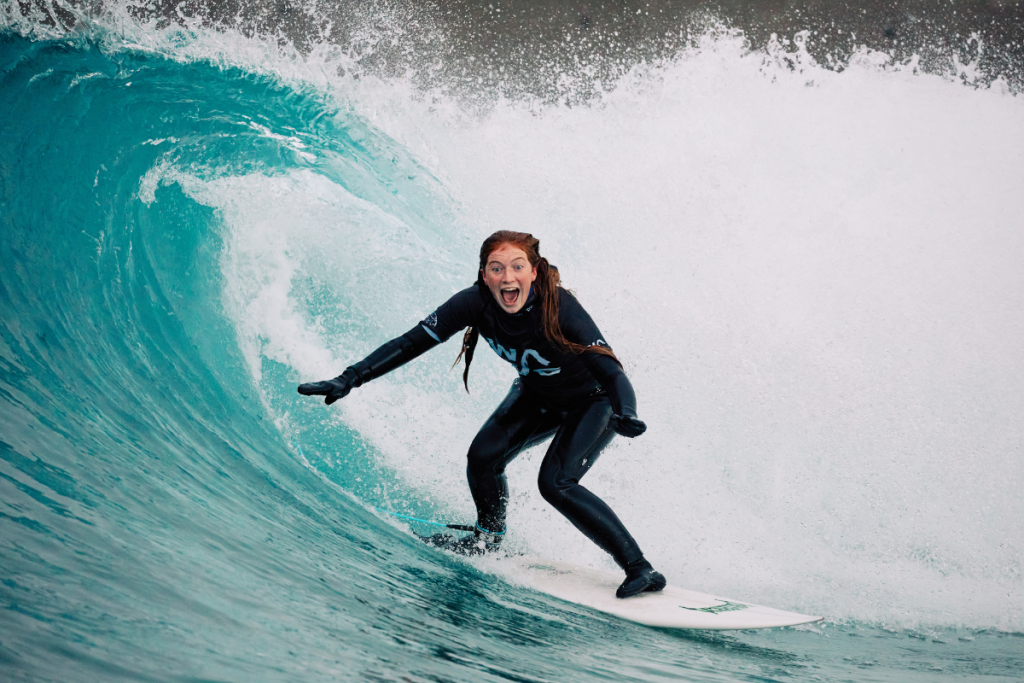
The process is far from easy and requires a meticulous approach to each layer of a business.
Surf Park Central heard from The Wave CEO Hazel Geary on the process and what this certification means for the industry.
Surf Park Central: Tell me more about the process of getting B Corp certified.
Hazel Geary: Unlike traditional business models that focus on profit, B Corps subscribe to the triple bottom line framework, which considers not only financial returns but also social and environmental outcomes. It was created in the USA in 2006 with the mission to inspire and enable people to use business as a force for good – and ‘B Lab UK’ launched in 2015.
Becoming a B Corp is a rigorous and comprehensive process. The first step is to complete a B Impact Assessment which looks at your entire social and environmental performance. From supply chain and input materials to charitable giving and employee benefits, B Corp Certification verifies that a business is meeting high standards of social and environmental performance, transparency, and accountability.
A business must score 80+ points to certify and then there is a long process of providing all the evidence to back this up – it really digs into all areas of the business. One essential requirement is that you make a commitment to consider your company’s impact on its stakeholders, now and in the future, by building it into your legal structure and updating your Articles of Association to include mission-aligned legal language.
The certification recognizes the work we have done to date to be a truly triple bottom line business but – most importantly – it helps us to identify where we can continue to improve and helps us create a framework for going forward.
Surf Park Central: What inspired The Wave to make these efforts?
Geary: From the very beginning The Wave Founder, Nick Hounsfield, knew he wanted The Wave to be a force for good, which was based on triple bottom line principles. One of the first things he did back in 2012 – along with Chris Hines MBE (Co-Founder of Surfers Against Sewage) – was draft a Sustainability Policy. This set down the blueprint for a business that would always look to balance its impact on people, planet and profit. In 2015, the team learned about an organization called B Corporation that was just taking off as a movement in the UK, and knew this could provide a framework to help support our vision of doing business differently. Roll forward to 2024 and we now have B Corp Status.
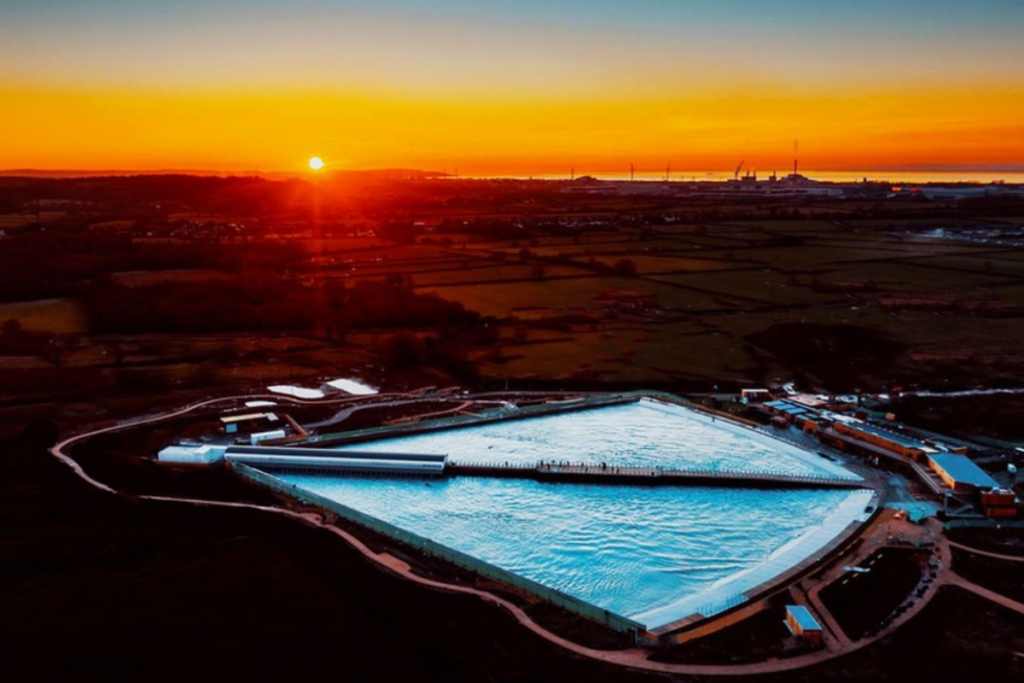
Surf Park Central: What are the biggest challenges for surf parks trying to become more sustainable?
Geary: In terms of environmental sustainability, energy and water usage are two key areas for surf parks. We have spent a lot of time looking at how we can be more efficient in our use of energy and water, making savings wherever we can. The biggest step we made in terms of energy was to build our own solar array, allowing us to produce more electricity than we use each year.
In terms of social sustainability, the cost of surf sessions and lessons at surf park can be a barrier to entry for some groups. To be financially sustainable and repay the investment needed to build a surf park, tickets need to be the price they are, but this will stop some people from visiting. We knew that if we wanted to help make surfing more diverse and attract groups that may never have considered trying it, we needed a program that supported this.
Our Impact Programme works by offering a sliding scale of discounts, linked to when we are quieter and have more capacity in the lake – for example, we can offer a bigger discount on a Monday at 10 am outside of school holidays, compared to a Friday afternoon. Groups that meet the criteria set out for the areas we support can access these. We also have a ‘donate at check out’ function when people buy tickets online, that helps raise funds to support the program. We also collaborate with some of our key partners to make even more impact, together.
Internal communications to employees to ensure that environmental and social sustainability is understood in the context of profit sustainability is also incredibly important. There can be no environmental and social benefits without remaining profitable, so ensuring staff are comfortable with focusing on driving repeat bookings as part of the experience is critical.
Surf Park Central: How can sustainability efforts create a more successful surf park industry?
Geary: By seeking to balance impact on people, planet and profit throughout your decision-making, your aim is to have a positive outcome across all three areas.
You often find a decision that is better for the environment – like reducing energy usage – will have a positive impact on profit. Or a ‘people’ decision – such as providing extra para-surfing coach training for the team – can improve staff retention, as well as attract more customers – again helping with financial sustainability.
We really believe that if all surf parks adopted a similar approach to sustainability, then that could only be a good thing for the sector as a whole. As a relatively young sector, the surf park industry can really benefit from a collaborative approach to improving and developing. Sustainability is definitely an area where we can, and should, all learn from each other.
Surf Park Central: Have you heard any feedback from guests regarding The Wave’s sustainable efforts?
Geary: Triple bottom line sustainability has been part of our DNA since the beginning and is something we have talked about a lot. It is a core part of who we are and definitely appeals to our visitors. We know that elements such as our ‘sunshine powered waves’ are a hit – people feel good about supporting a business that is making a positive environmental impact. We also see some of our regular surfers getting involved in the Impact Programme, for example by supporting the Wave Project surf therapy courses as volunteers.
As well as guests, it’s important to consider the impact of sustainability efforts on employees. We know that people are looking to work for companies that are more sustainable and have a core purpose that is bigger than simply profit. We know that B Corp status will attract people to work with us – and is also a great motivation for current team members and good for retention.
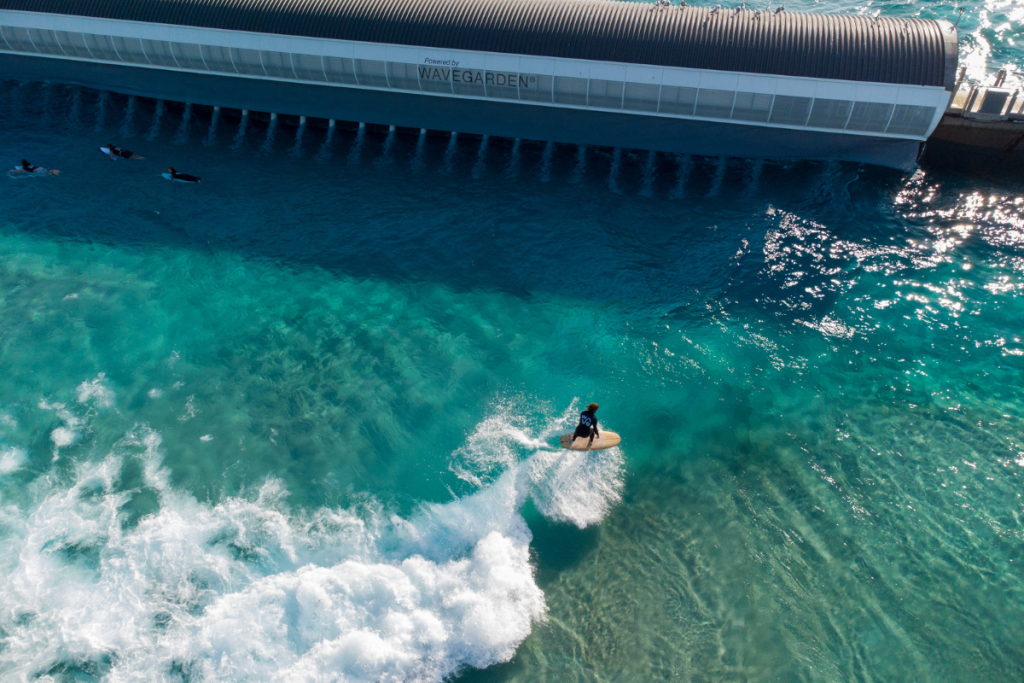
Surf Park Central: Our latest consumer trend survey found that people were willing to pay more for entry to a sustainable surf park, have you found that to be true?
Geary: Ultimately, our customers are looking for a great experience that demonstrates good value for money. Once those are covered off, we are aware that a large section of our audience is environmentally conscious. Therefore, by ensuring that customers are educated that the materials, products and food that we use are sustainably sourced, there is an appreciation and understanding that this comes with a slightly premium cost.
Surf Park Central: Are there any updates regarding the solar farm? How was that process?
Geary: The solar array was a big undertaking, in terms of securing planning, raising funding (including one of the last ERDF grants), and then the build. It has been up and running for a year now.
Three key facts since we turned on the solar panels in September 2023:
1. We have already generated over 2,000 MWh of electricity
2. About a third of this has been used at The Wave, with the balance being sold to the grid. We are a net exporter of electricity to the grid.
3. About half the electricity used at The Wave has come directly from WFC.
Surf Park Central: What would you recommend as a first step to other surf park operators looking to make a greener future?
Geary: Every little step you make to be more sustainable as a business helps – the important thing is to understand where you currently are and where you could improve. Even small steps on areas such as energy saving can make a difference.
To make a significant step change, surf parks need to establish and embed a triple bottom line philosophy across the business – ensuring you get all teams and departments on board. By encouraging everyone throughout the company to always examine the impact of any decision on people, planet and profit – and balance these – then you will become a better business.
Surf Park Central: Is there anything else you would like to share?
While this is a huge moment that should be celebrated, it’s really just the beginning. The B-Corp framework will continue to challenge us on a daily basis across all areas of the business, and we need to be conscious that every decision we make could have an impact on our score that must be balanced out in other ways. An exciting journey for us to continue.





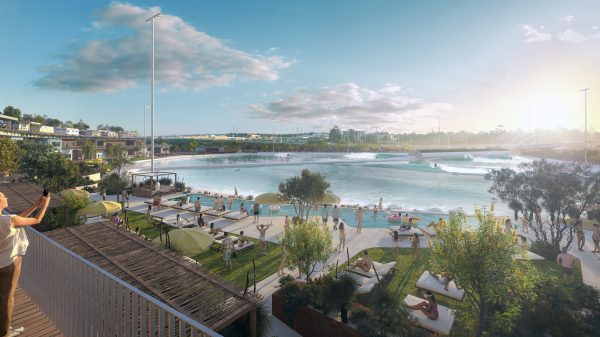
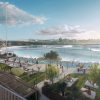

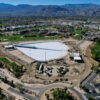
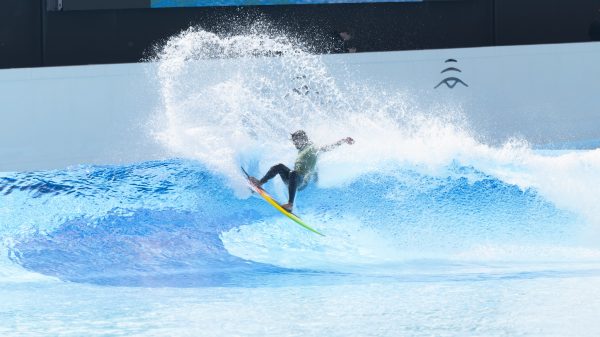

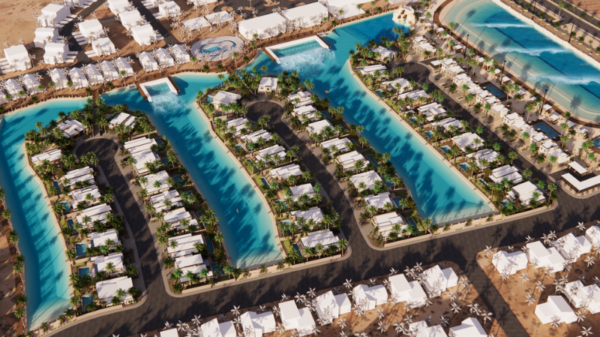

You must be logged in to post a comment Login